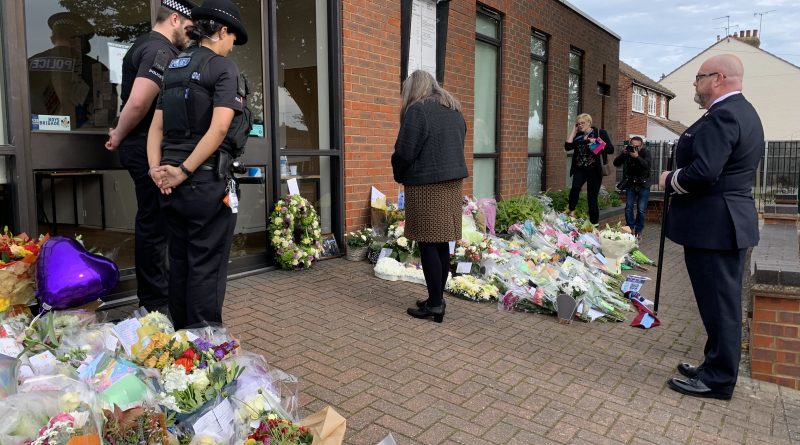British MP Sir David Amess Killed in Stabbing Attack
Annie Hebel
Associate Editor
For the second time in just five years, a British politician has died after an attack while meeting with constituents. The New York Times reports that on October 15, longstanding conservative Member of Parliament (MP) Sir David Amess was fatally stabbed inside of a church during a constituency surgery in Essex. The incident, quickly declared a terrorist attack, has sent shockwaves throughout the UK, raising concerns about the security of lawmakers in an increasingly tense political climate.
BBC News reports that Amess was meeting with community members at his weekly constituency surgery, an open meeting where constituents can discuss their concerns with their MP, at a church in the small village of Leigh-on-Sea when he was killed. Police arrested a 25-year-old man shortly thereafter at the scene, whom Reuters names as Ali Harbi Ali. Ali, a British national, is the son of an ex-media advisor to a former Somali prime minister. It is believed that he acted alone.
Sir David, 69, was a 38-year veteran of Parliament who was known for his soft-spoken manner and record of lawmaking aimed at helping the most vulnerable members of his community. Tributes poured in from figures from both sides of the political spectrum, expressing shock at his death and commending his dedication to the British people. In a statement, Prime Minister Boris Johnson referred to Amess as “one of the kindest, nicest, most gentle people in politics,” according to NBC News. He was knighted in 2015 for his dedication to public service in the UK.
Constituency surgeries are a standard part of British political life, a unique opportunity for voters to get face to face, one-on-one consultations with their member of parliament to air concerns, as they would with a medical doctor. However, as The New York Times reports, the security implications of these events have brought them under scrutiny. Amess is the second lawmaker to be killed in similar circumstances in five years, following the death of MP Jo Cox in 2016. Like Amess, Cox was killed outside of a constituency surgery by a right-wing extremist.
The New York Times continues that while many lawmakers feel strongly about the need to have close contact with their constituents, which are seen by many in Britain as the bedrock of parliamentary society, safety concerns have caused many MPs to tighten security and even move meetings to online or private settings. Concerns about Brexit and, more recently, COVID-19 have significantly increased British political tensions, causing increased threats of violence against lawmakers.
Amess’s death shed light on the increased abuses experienced by UK politicians in the wake of the country’s tense political climate. The Guardian details many of the horrific threats received by MPs both inside and outside of constituency surgeries, from confrontation and abuse of family members to one constituent warning an MP that they knew where her children attended school. In 2018 alone, 342 alleged crimes against MPs were reported to police – a 126 percent increase from the year prior. That number is especially staggering considering that there are only 650 members of parliament in Britain.
In response to this increased hate, which is further exacerbated by the anonymity offered by social media, dozens of MPs are calling on Prime Minister Johnson to enact “David’s law,” designed to crack down on anonymous social media abuse of public figures and their families, reports The Guardian. MP Mark Francois, a close friend of Amess, noted that this was an area that Amess was particularly concerned about. “In the last few years David had become increasingly concerned about what he called the toxic environment in which MPs, particularly female MPs, were having to operate in,” he said. “He was appalled by what he called the vile misogynistic abuse which female MPs had to endure online, and he told me very recently that he wanted something done about it.”
In his memoir, published last year, Amess remarked at how the murder of Jo Cox changed the nature of British politics, The Telegraph explains. He noted that he routinely experienced “nuisance” from constituents showing up at his home throughout his tenure, leading him to regularly check his locks for the safety of him and his family. Though he detailed how security had increased and changed the nature of constituency surgeries during his time in parliament, he acknowledged the element of risk that still came with every meeting.
“We all make ourselves readily available to our constituents and are often dealing with members of the public who have mental health problems,” Amess wrote. “It could happen to any of us.”


